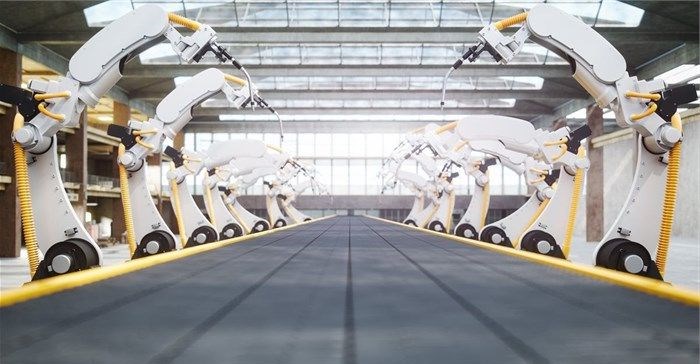Like so many other industries, logistics and supply chain management have had to evolve rapidly over the past year to reflect not only the latest technologies, but also meet the changing demand from stakeholders for more intelligently-driven solutions. Artificial intelligence (AI) has become a vital asset in this regard.
As more manufacturers start to adopt the Internet of Things (IoT) and edge computing to capture and analyse data as close to the point of origin as possible, this has created a knock-on effect from an information management perspective. As these new touch points generate more data at a rate few organisations can effectively manage, it has highlighted the need to view the entire supply chain differently. Of course, this might be challenging to navigate, but the opportunities for growth and to identify new business models cannot be ignored.
Throughout this, the need to leverage AI to analyse internal and external data at scale cannot be ignored. Yes, the supply chain ecosystem has become complex given the explosion of IoT and data. Yes, the ability to effectively secure data and optimise processes are significant challenges to address. But having the opportunity to unlock new insights from this ‘new’ environment and ensure organisations become more agile and responsive to changing demands makes these obstacles worth the effort to overcome.
Technology and more
Technology has always played a key role in the logistics and supply chain management industries. Managing these networks even in the pre-pandemic days could not have been done without dedicated solutions in place. However, what has changed is the ability to automate much of the time-consuming and resource-intensive processes through advanced analytics, AI, and machine learning. These three technologies help businesses affect meaningful change faster than ever.
For instance, by having sight of the entire supply chain from an integrated dashboard means managers can reduce uncertainty, make more informed decisions, and deliver demonstratable returns throughout the entire organisation.
Data scientists and analytics professionals are an important component in this regard. While AI automation means resources can be allocated to other critical areas, it also requires specialists who best understand how to harness the potential of the technology. These link business acumen, critical thinking, problem-solving, and communication into the data narrative to give meaningful feedback to decision-makers across the entire logistics and supply chain.
Goodbye silo
Traditionally, the supply chain was in its own silo in the organisation. But thanks to the combination of AI technologies and data scientists, it has become more integrated into the entire enterprise. And by removing this siloed approach of the past, data starts permeating across divisions. This means that AI techniques should be employed to extract the value that each data point can offer. Doing it quickly and at scale become non-negotiable.
The opportunity for businesses to enhance the value they get from all the data they generate is only growing and becoming more complex to manage. How analytics is built, applied, managed, and executed will become serious questions of the future. Those organisations that are still only exploring the potential of AI in the supply chain must start moving to pilot phases and identifying relevant use cases before too long. The pace at which change is happening and forcing a rethink of how best to optimise the traditional supply chain necessitates this. With AI in tow, combining with data analytics, the logistics and supply chain operation of the connected world will be more agile to demand.




































